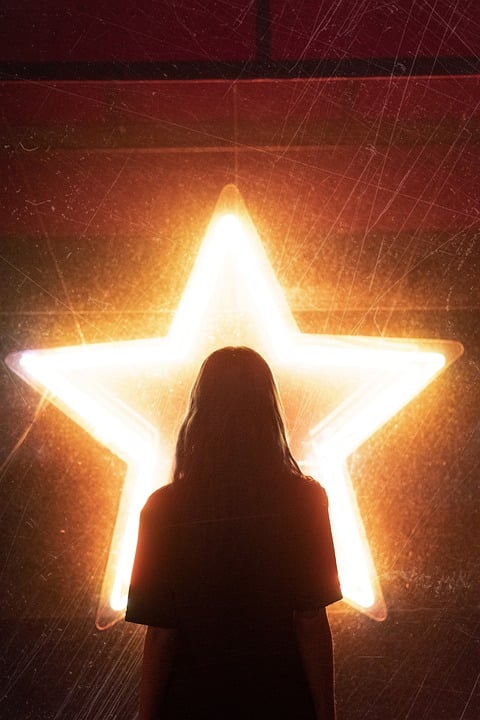A Look Back at the Most Iconic Moments in Cannes Film Festival History
The Cannes Film Festival is one of the most prestigious events in the film industry, attracting filmmakers, actors, and cinephiles from around the world. Founded in 1946, the festival has a rich history of showcasing groundbreaking films and launching the careers of some of the biggest stars in Hollywood. Over the years, the Cannes Film Festival has produced many iconic moments that have left a lasting impact on the world of cinema. Let’s take a look back at some of the most memorable moments in Cannes Film Festival history.
1953: Grace Kelly’s Cannes Debut
Grace Kelly made her first appearance at the Cannes Film Festival in 1953, where she presented the film “Mogambo.” The stunning actress captured the hearts of audiences and quickly became a fan favorite. Her elegant style and natural beauty solidified her status as a Hollywood icon, and she would go on to win an Academy Award for her role in “The Country Girl.” Grace Kelly’s debut at Cannes marked the beginning of a successful career that would make her one of the most beloved actresses of her time.
1960: Brigitte Bardot’s Bikini Moment
In 1960, French actress Brigitte Bardot caused a sensation at the Cannes Film Festival when she posed in a bikini on the beach. The iconic image of Bardot lounging in the sun became a symbol of French glamour and beauty, and solidified her status as an international sex symbol. Bardot’s bold fashion choice and carefree attitude captured the spirit of the 1960s and remains one of the most iconic moments in Cannes Film Festival history.
1976: Martin Scorsese’s Taxi Driver
In 1976, American director Martin Scorsese premiered his film “Taxi Driver” at the Cannes Film Festival to critical acclaim. The gritty, urban drama starring Robert De Niro as a mentally unstable taxi driver became an instant classic and solidified Scorsese’s reputation as a master filmmaker. “Taxi Driver” went on to win the prestigious Palme d’Or, the highest prize awarded at Cannes, and remains one of the most iconic films in cinematic history.
1994: Quentin Tarantino’s Pulp Fiction
In 1994, Quentin Tarantino’s “Pulp Fiction” took Cannes by storm, winning the Palme d’Or and achieving cult status among film lovers. The star-studded ensemble cast, nonlinear narrative, and bold storytelling style marked a new era in filmmaking and established Tarantino as a visionary director. “Pulp Fiction” remains one of the most iconic and influential films of the 1990s, and its Cannes premiere is remembered as a watershed moment in cinema history.
2003: Sofia Coppola’s Lost in Translation
In 2003, Sofia Coppola made history at the Cannes Film Festival by becoming the first American woman to win the Palme d’Or for her film “Lost in Translation.” The intimate and contemplative drama about a chance encounter between two strangers in Tokyo struck a chord with audiences and critics alike, earning Coppola widespread acclaim. “Lost in Translation” catapulted Coppola to international stardom and cemented her status as a talented filmmaker with a unique voice.
2011: The Artist Wins Best Actor and Best Actress
In 2011, the silent film “The Artist” made a splash at the Cannes Film Festival by winning the Best Actor and Best Actress awards for its stars Jean Dujardin and Bérénice Bejo. The charming and nostalgic film paid homage to the silent era of Hollywood and captivated audiences with its whimsical storytelling and evocative performances. “The Artist” went on to win multiple Academy Awards, including Best Picture, further solidifying its place in cinema history.
2017: The Controversy Surrounding Okja
In 2017, Korean director Bong Joon-ho’s film “Okja” sparked controversy at the Cannes Film Festival due to its inclusion in the competition lineup. The Netflix-produced film, which tells the story of a young girl who befriends a genetically modified super pig, divided audiences and raised questions about the future of cinema in the digital age. The debate surrounding “Okja” highlighted the changing landscape of the film industry and the challenges filmmakers face in a rapidly evolving world.
2021: The Return of the Cannes Film Festival
After being cancelled in 2020 due to the global pandemic, the Cannes Film Festival made a triumphant return in 2021 with a lineup of critically acclaimed films and star-studded red carpet events. The festival reaffirmed its status as a beacon of cinematic excellence and a celebration of the art of filmmaking. From the premiere of Leos Carax’s musical drama “Annette” to the awarding of the Palme d’Or to Julia Ducournau’s horror film “Titane,” the 2021 Cannes Film Festival was a testament to the enduring power of cinema in challenging times.
In conclusion, the Cannes Film Festival has a storied history of iconic moments that have shaped the world of cinema and inspired generations of filmmakers. From the glamorous appearances of Hollywood stars to the groundbreaking premieres of classic films, Cannes has been a place of innovation and creativity for over 70 years. As the festival continues to evolve and adapt to the changing landscape of the film industry, its legacy as a hub of artistic excellence and cultural significance remains unshakable. Cannes will always be remembered as a place where dreams are made, stars are born, and cinema is celebrated in all its glory.



